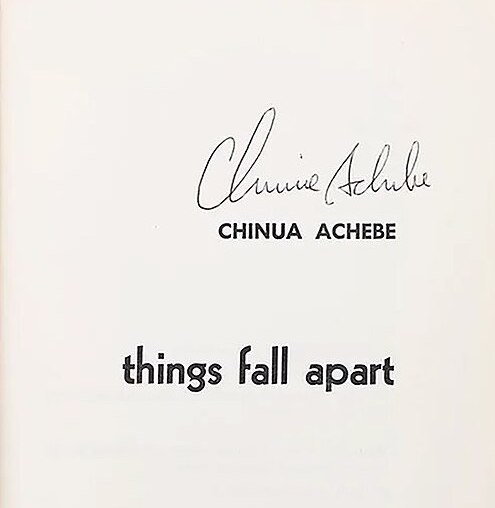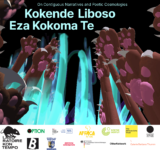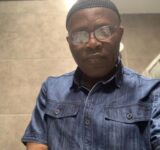Serubiri Moses
Can Lugaflow represent Uganda nationally or internationally in the same way Chinua Achebe’s Things Fall Apart represents Nigeria nationally and internationally?
“I’m just trying to shape my own destiny, I’m trying to be my own Museveni.” – Karama – Noonya (I’m Searching)
Rappers, as authors of rap lyrics and performers of rap music, portray themselves as aggressive and assertive actors on the streets. In Kampala the rapper’s lyrics are based on the recent political events shaking up the streets of the city. As a listener of rap music, I grapple with the rapper’s identity in the face of Ugandan politics.
While the experience of listening to Hip Hop is the most obvious mediation with the rapper, it is ironically the most limiting. The listener is introduced to the rapper as an alter ego that stretches reality on the streets beyond normal comprehension. Thus, unlike the experience of reading the African novel, listening to Ugandan rap music requires an insider’s perspective.
The literature of Ugandan rap: its stories, biographies, metaphors, and dictations, remains known explicitly to the fraternity of rap listeners in Uganda, but obscure to those outside of this group. When Karama sings about “being his own Museveni” he does not refer to overthrowing the current Ugandan government, and must not be suspected for dissent. Instead, the rap lyric points to a more subtle analogy to being ‘my own dictator’ or wanting to ‘remain in power.’ These are subtleties that the average listener of Ugandan music can miss out on catching.
The fact that rap music in Uganda is associated with street culture and language immediately draws negative reactions from listeners. The rapper is then associated with the idle and disorderly: their integration into the mainstream is extremely difficult.
Because the Lugaflow rapper, as locally known, comes from the street, working primarily out of ghetto studios or performing at neighborhood rap cyphers, and part of a hidden fraternity of performers, producers and listeners, their music often takes the approach of documenting an ascent into the public mainstream posing impressions of ‘struggle’ along the way which denote Hip Hop.
However, being a distinctly American culture based on particular migrations or events in American political and social history, Hip Hop often isolates local listeners who contrast the aggressiveness of rap against their local cultures of poetry, oral history and performance. Not at all surprisingly in Uganda is that rappers performing in English are discriminated against more than those performing in Luganda or Lusoga or Acholi, and other local languages. It sometimes looks like the fight between fans of Chinua Achebe’s Things Fall Apart and Amos Tutuola’s The Palm Wine Drinkard. And while Tutuola’s book is cult classic at home in Nigeria, Achebe’s postcolonial novel is the most published piece of African literature in the world. These diverse contexts stretch the imagination regarding the audiences or consumers of Hip Hop who play a definitive role in the music.
In Uganda, the Lugaflow (Ugandan rap in local languages) rapper is not chosen to represent Uganda politically or culturally, and therefore does not appear in the public eye as a Lugaflow rapper traveling across borders, voting or campaigning as such, but remains a unique cultural phenomenon functioning outside of mainstream politics and national culture.
The traditional cultural framework in Uganda forces the rapper to answer to the cultural tenets of African Nationalism, which emphasize the interdependence of culture and politics. The rapper’s lyrics and Hip Hop aesthetics are then subjected to the ideas of such cultural Pan Africanism: why use English in Ugandan rap if it is truly an African genre of music?
And yet such paradigms are countered by Lugaflow. Through an innovative use of Luganda, Lugaflow breaks the norms of a Ugandan nationalist or Pan Africanist paradigm by highlighting the multiculturalism of major cities in Uganda, and new ambiguous languages developed on the street. As an urban phenomenon, rap music democratizes cultural expression and liberates its audiences in the process.
However, Lugaflow operates within the larger Ugandan nationalist culture, defined during postcolonial regimes. One particularly recalls the OAU 1976 Charter for African Cultural Renaissance, which was probably read at the International Conference Center in Kampala during the Amin Years.
It states, ‘African culture is meaningless unless it plays a full part in the political, economic and social liberation struggle.’ How does Lugaflow therefore fulfill this criteria? As a culture, does it fully participate within the political, economic or social liberation struggle?
My biggest inquiry of rap music in Uganda is about its integration into Uganda’s political, economic or social history. Does Lugaflow address the historical questions of Ugandan identity that would allow it to activate listeners who have a broader understanding of Uganda’s nationalist culture? If not for nationalism, is the Ugandan rapper willing to react against nationalism?
It is easy to see that if the rapper does not answer these questions for the Ugandan public they are at the risk of being rejected with the common nationalistic phrase, ‘That is not our culture!’ My concern then becomes what if Lugaflow is not our culture? Does Lugaflow, as earlier noted, address the nationalist criteria of Ugandan culture? Can Lugaflow represent Uganda nationally or internationally in the same way Chinua Achebe’s Things Fall Apart represents Nigeria nationally and internationally?
Of course these are daunting concerns for any rapper, or novelist for that matter. I can see how the autobiography of the rapper comes into question; how the rapper’s lyrics can become dirty evidence used against them in courts of law; how the credibility of the rapper in the finance office of government may come into question; how the rapper’s patriotism may be questioned.
I return to my own listening experience of Lugaflow. My initial interest with the music came through watching live rap performances at poetry shows, it was through listening to Lugaflow at small and private poetry events that I was oriented into Lugaflow. However, my search for the Ugandan rapper’s true identity in translations, conversations and hours of listening have led me to the conclusion that the identity of the rapper is understood primarily by those within the subculture of Lugaflow; for those outside, I realized that the rapper remains as other, specter, thief, idler or animal.





